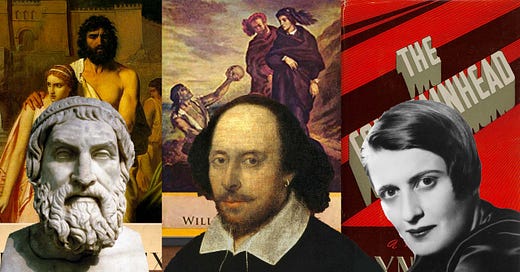Author’s note: This article contains spoilers for Oedipus the King, Othello, Macbeth, Hamlet, and The Fountainhead.
Oscar Wilde once remarked that life imitates art. Studying tragedies of great literature can help us ensure that our lives do not imitate such art. Of course, the intense intellectual and emotional experiences invoked by such stories are en…
Keep reading with a 7-day free trial
Subscribe to The Objective Standard to keep reading this post and get 7 days of free access to the full post archives.




